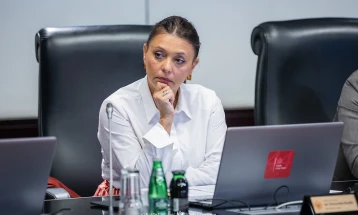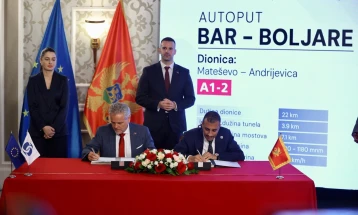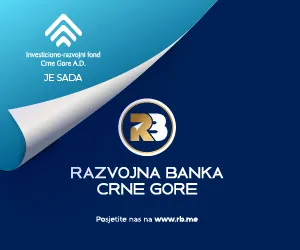With state bonds to liquid budget
- With state bonds to liquid budget
- Post By daniloc
- 12:54, 14 februar, 2002

State bond is a short-term security, issued by the state in order to finance the current budget deficit with money from legal subjects and natural persons.
Director of the sector for economic and financial activities of the Central Bank of Montenegro, Idriz Cetkovic, says that so far, seven auctions of state bonds have been organized, and the buyers were business banks and companies, while natural persons have so far been "just interested in it".
"In order to buy state bonds, the buyer must be registered in the Central Depositary Agency and present guarantees that he would pay for them, before the auction starts. All interested persons and legal subjects must have a giro-account in the General Clearing House of the Central Bank of Montenegro or in one of the business banks," said Cetkovic at today#s meeting with journalists at the press-club of the Secretariat for information.
He explained that the Central Bank had to be sure that the buyer had money to buy the securities, so at least two hours before the auction the amount of money at his giro-account would be blocked.
"As a discounted security, the state bond is bought at the price lower than the nominal one, but it is payable on the date of maturity. The difference between nominal value and purchase price is the earned interest rate for this investment," said Cetkovic.
Cetkovic said that the Central Bank sold state bonds as a fiscal agent of the Government, that is, of the Ministry of finance of Montenegro. He claims that the purpose of the sale of state bonds is short-term investing of temporary free money.
"The Central Bank does not emit the money, but it is obliged to provide to business banks the maintenance of liquidity, only if they have a pledge in securities as high as the amount of credit they request," said Cetkovic.
He reminded that the Central Bank organized auctions of state bonds every other week, adding that it was necessary to fill in and direct the offer forms to the Central Bank of Montenegro, before 12 o#clock at the auction day.
"Possible buyers submit their offers of interest rates on annual basis, and computer then processes these data and allots the amount of state bonds by growing order of rates. If, after the processing is completed, there are several offers with the same interest rate, then the rest of the bonds would be proportionally allotted. If the buyer offers an interest rate of seven percents on annual basis for bonds with date of maturity of 90 days, he would state this interest rate in his offer and pay 98.28 EUR for every 100 EUR of bonds bought," explained Cetkovic.
He also said that after their maturity date, the buyer would be given the nominal value, so he would earn 1.72 EUR on every 100 EUR of bonds bought.
He said that business banks and natural persons could trade state bonds at the secondary market as well.
"Natural persons can address business banks to represent them at the trade on the secondary market, and the bank is responsible for validity of the ownership and for settlement. After that, the Central Bank issues the certificate on ownership to the natural person involved," said Cetkovic.












